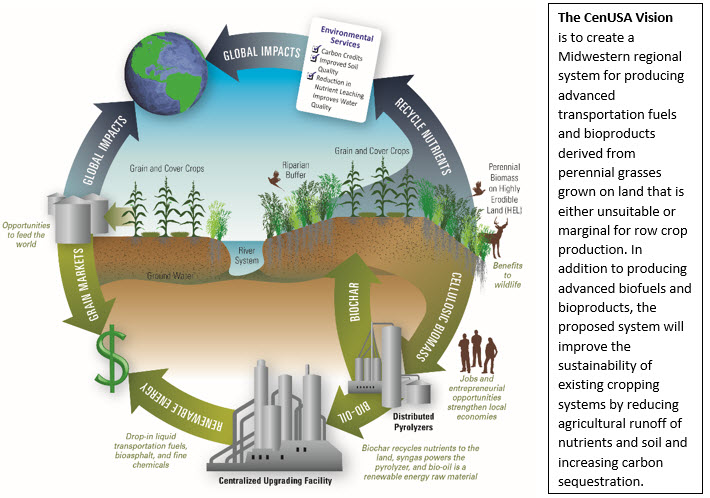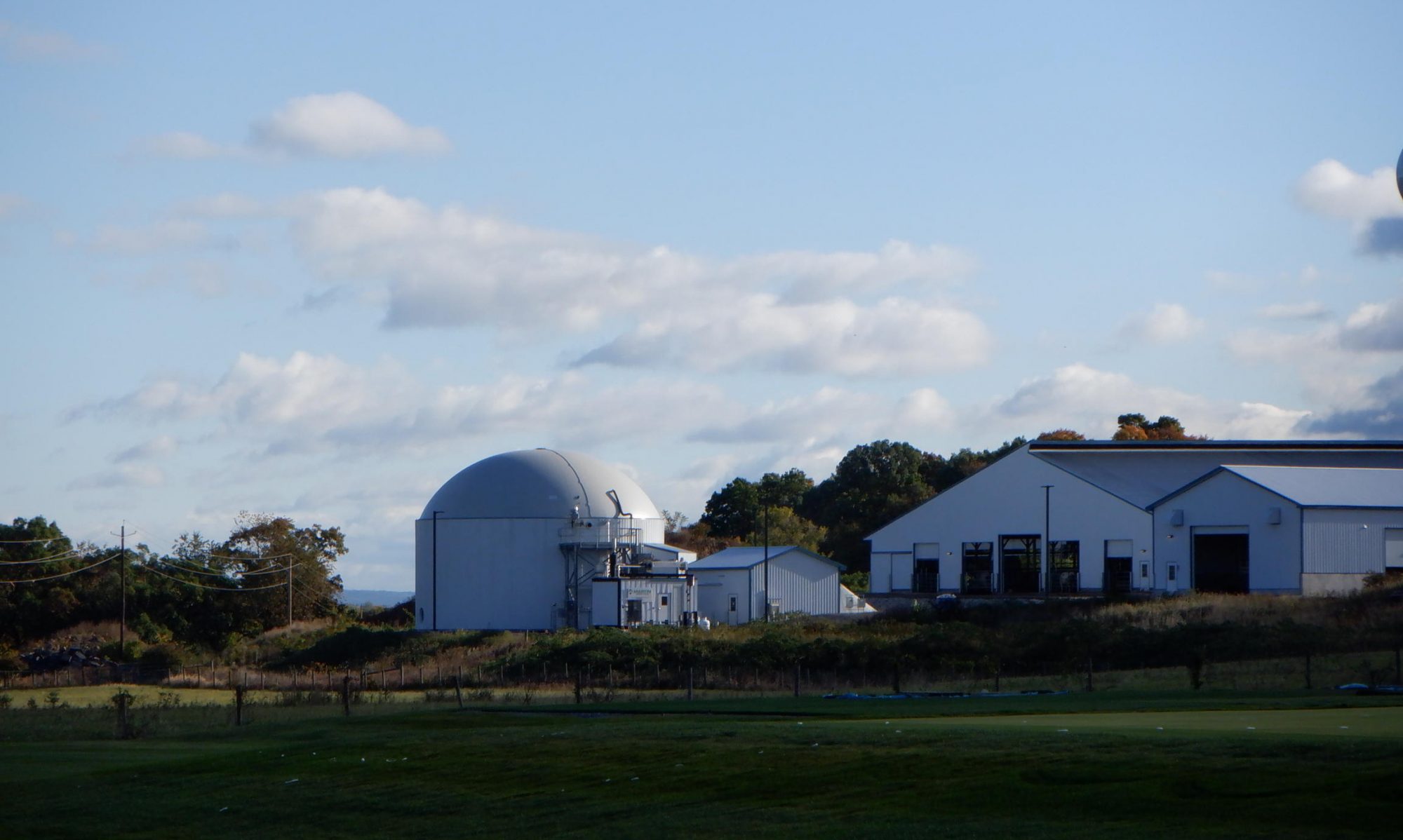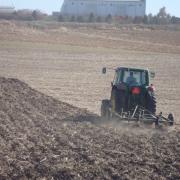Thermochemical processes convert biomass to liquid bio-fuel and produce biochar, a valuable co-product for soil quality and reduced greenhouse gas emissions.

Funded by AFRI. Learn More.
Table of Contents
- Team Objectives
- Collaborators
- Team Activities
- Outcomes from The Team’s Work
- Future Work
- Contributors to This Report
- CenUSA Feedstock Conversion and Refining Team Publications

Team Objectives
The work of CenUSA’s Feedstock Conversion and Refining Team begins after the perennial-grass feedstock leaves the farmgate. What to do with the raw …




